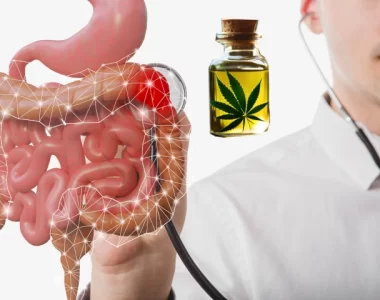Are you apprehensive about potential Delta 8 THC bans looming on the horizon? Don’t fret just yet! In this blog post, we’ll explore why banning Delta 8 THC might not be the best approach and uncover the misconceptions surrounding this cannabinoid.
Join us as we unravel the benefits, discuss alternative solutions, and guide you toward making an informed decision about regulating Delta 8 THC. Let’s first separate fact from fiction.
What is Delta 8 THC?
Delta 8 THC, short for Delta-8-tetrahydrocannabinol, is a naturally occurring cannabinoid found in the cannabis plant. It shares similarities with its more well-known cousin, Delta 9 THC, but with some distinct differences.
While Delta 9 THC is known for its potent psychoactive effects that can lead to anxiety and paranoia in some users, Delta 8 THC offers a milder high that is often described as more clear-headed and less overwhelming.
Many people turn to Delta 8 THC for its potential therapeutic benefits, including pain relief, reduced nausea, and improved appetite stimulation. This cannabinoid interacts with the body’s endocannabinoid system to produce these effects without causing the intense intoxication commonly associated with Delta 9 THC.
Delta 8 THC presents an intriguing alternative for those seeking a more balanced cannabis experience. Its unique properties make it worth exploring further as we continue to unlock the potential of cannabinoids in promoting wellness and overall health.
The benefits of Delta 8 THC
Delta 8 THC offers a range of potential benefits that have caught the attention of many individuals seeking alternative forms of relief. Many users report feeling a sense of relaxation and calm after consuming Delta 8 THC products.
Additionally, some users have experienced improved focus and clarity when using Delta 8 THC, which can be beneficial for productivity and concentration.
Moreover, Delta 8 THC has shown promise in helping manage symptoms related to anxiety and stress. Some users find that it helps alleviate feelings of tension and promotes a more positive outlook.
Furthermore, Delta 8 THC may offer relief from mild pain and inflammation without the psychoactive effects commonly associated with traditional THC.
The potential benefits of Delta 8 THC highlight its versatility as a wellness aid worth considering for those interested in exploring natural remedies beyond conventional options.
Misconceptions about Delta 8 THC
There are many misconceptions surrounding Delta 8 THC that often lead to confusion and fear among consumers. One common misconception is that Delta 8 THC is just as potent and psychoactive as Delta 9 THC.
While both compounds have similar properties, Delta 8 THC tends to be milder in its effects, offering a more subtle high without the intensity associated with Delta 9 THC.
Another misconception is that Delta 8 THC is illegal or unsafe to consume. In reality, Delta 8 THC falls into a legal grey area due to its derivation from hemp rather than marijuana. As long as it contains less than 0.3% Delta 9 THC, it is technically legal under federal law.
Some people also believe that all forms of THC are addictive and harmful. However, when consumed responsibly and in moderation, Delta 8 THC can offer various therapeutic benefits without causing addiction or severe side effects.
It’s important to educate yourself about these misconceptions and understand the true nature of Delta 8 THC before forming any judgments or opinions on its regulation.
Why banning Delta 8 THC may not be the best solution
As the debate over Delta 8 THC continues, some argue that banning it may not be the most effective solution. Proponents believe that outright prohibition could drive consumers towards unregulated and potentially dangerous alternatives.
By regulating Delta 8 THC instead of banning it, there is an opportunity to establish quality control standards and ensure product safety.
Furthermore, many users have reported experiencing therapeutic benefits from Delta 8 THC, such as pain relief and reduced anxiety. Banning this compound could deprive individuals of a natural alternative to traditional pharmaceuticals with harsh side effects.
Additionally, by allowing regulated access to Delta 8 THC, authorities can monitor its distribution and sales more effectively.
While concerns about misuse and abuse are valid, a blanket ban on Delta 8 THC may not be the most practical approach. Finding a middle ground through regulation could strike a balance between public safety and individual choice.
Alternative solutions to regulating Delta 8 THC
When considering the regulation of Delta 8 THC, it’s important to explore alternative solutions beyond an outright ban. One potential option is implementing strict quality control measures and labeling requirements.
By establishing clear guidelines for production and distribution, regulators can help mitigate any potential risks associated with Delta 8 THC products.
Another approach could involve setting age restrictions and limiting the potency of Delta 8 THC products available on the market. This would help address concerns about youth access and overconsumption while still allowing responsible adults to benefit from its therapeutic properties.
Additionally, providing education and resources about safe usage practices could be a proactive way to promote responsible consumption within the community. Empowering individuals with knowledge can lead to more informed decision-making when it comes to using Delta 8 THC products.
Exploring these alternative regulatory strategies may offer a more balanced approach that prioritizes both public health and individual freedom of choice when it comes to accessing Delta 8 THC.
Making an informed decision about Delta 8 THC regulation
Making an informed decision about Delta 8 THC regulation is crucial for addressing the concerns surrounding its use.
By understanding the benefits, debunking misconceptions, and exploring alternative solutions to regulating Delta 8 THC, policymakers can make well-informed choices that prioritize public health and safety while still allowing access to this beneficial compound.
It’s essential to consider all perspectives and gather reliable information before implementing any regulations on Delta 8 THC.
Remember, knowledge is power when it comes to making decisions that impact individuals’ well-being in a fair and balanced manner.




